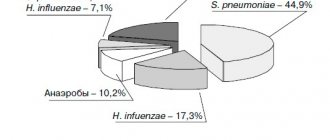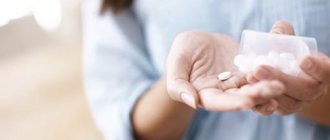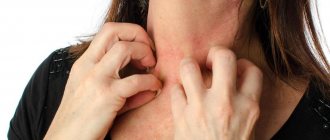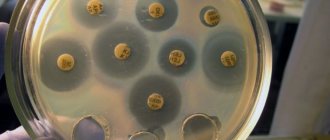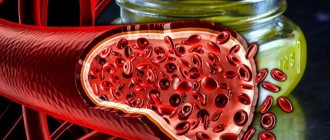Quite often, patients turn to their doctor with the question, is it possible to combine alcohol and antibiotics?
Every person has to deal with diseases that can only be overcome with the help of special antimicrobial drugs. The latter, as is known, are quite aggressive drugs, so antibacterial therapy is associated with certain restrictions, including the use of alcohol.
Antibiotics and alcohol: is it worth combining?
The question of whether it is possible to drink alcohol while taking antibiotics is debatable - it is easy to find conflicting opinions in the media. Previously, during a feast, an invited guest could refuse another portion of drink, citing antibiotic treatment. They sympathized with such a person and did not persuade him to drink. Now he may be objected to, citing articles in various publications claiming that alcohol-containing drinks do not interfere with the healing process. Where is the truth?
Combination of alcohol and antibiotics - main risks
When justifying the ban on the simultaneous use of antimicrobial agents and strong drinks, doctors usually explain the restrictions for the following reasons:
- Alcohol blocks (reduces) the therapeutic effects of antibiotics and/or causes unwanted reactions. The effectiveness of therapy decreases.
- With the simultaneous use of alcohol and antibacterial agents, severe toxic damage to the liver and other organs occurs.
How true are these statements?
Indeed, drinking intoxicating drinks can reduce the therapeutic effect of pharmaceutical drugs. In particular, this is due to the fact that alcohol either destroys the active substance itself or makes it difficult for the antibiotic to bind to the proteins of pathogenic microorganisms. In addition, drinking alcohol can lead to faster elimination of the drug from the body, which reduces its effectiveness, or, on the contrary, slows down the elimination of drug residues, resulting in unwanted symptoms.
Research and medical practice confirm that both alcohol and antibiotics have a depressant effect on the liver.
Liver under double attack
It is no coincidence that the instructions for antibacterial drugs indicate their negative impact on this important organ (some drugs are completely contraindicated for people with severe liver diseases). If you combine alcohol and an antibiotic, the liver suffers doubly, so the fears of doctors are completely justified. Not only the liver is under attack: a “cocktail” of alcohol with antimicrobial drugs negatively affects the functioning of the cardiovascular system, it is also dangerous for the pancreas and central nervous system.
Once in the body, alcohol is gradually broken down into carbon dioxide and water. The faster alcohol is processed, the less harmful the effect on the body. But with the simultaneous use of alcohol and antibiotics, the utilization of alcohol slows down, since the antibiotic blocks the enzyme alcohol dehydrogenase, which is necessary for the breakdown. Because of this, a toxic metabolite of alcohol accumulates in the blood, which poisons the body.
What is the basis for the statements of experts who believe that alcohol has no effect on the effect of commonly used antibiotics?
Is it possible to drink alcohol with antibiotics?
Rheumatology drugs
Rheumatoid arthritis, gout, various chronic inflammations of the joints - these pathologies are manifested by severe constant pain and require the prescription of serious anti-inflammatory drugs or other aggressive drugs. The use of cytostatics is especially dangerous - they have a pronounced damaging effect on the liver. Combining them with alcohol is unacceptable for those who are concerned about their own health.
Get a free consultation
+7 (495) 266-59-76
or make an appointment
Has it been possible to prove the negative effect of alcohol on antibiotics?
To give a reasoned answer to the question, relevant research was carried out.
Scientists conducted laboratory experiments on animals and then invited volunteers to participate in the research. They were asked to undergo a treatment course with antibacterial agents, during which they could drink alcohol. The main goal that the organizers of the experiments set for themselves was to establish how alcohol (ethanol) affects antibiotics.
Research results have shown that most antibacterial agents most likely do not interact with alcohol. In other words, it does not have a significant effect on the drugs.
This conclusion was reached based on the fact that the effect of antibacterial therapy in the group of patients where alcohol was prohibited and in the group where patients drank intoxicating drinks was identical. Indicators of absorption, distribution and excretion of drugs were almost the same, with minor deviations.
Most antibiotics do not interact with alcohol
But you shouldn’t jump to the conclusion that the combination of alcohol and antibiotics does not pose any threat. Experts pay attention to the following nuances:
- The studies were isolated, so it is impossible to speak with 100% confidence about the safety of the combination.
- During the experiments, small doses of alcohol were used (we are not talking about uncontrolled, immoderate intake of strong drinks).
- The studies carried out concerned exclusively the interaction of the drug with ethyl alcohol. No one has refuted the negative impact of antibiotic + alcohol symbiosis on the liver and the entire body as a whole.
Antiallergic
Most often, patients with various types of allergies are prescribed antihistamines. They block certain receptors and prevent the development of symptoms of hypersensitivity reactions. However, the first generations of this group of drugs are characterized by a pronounced sedative effect, causing drowsiness, and the combination of these active substances with alcohol causes the same reactions as tranquilizers. Ethanol blocks the main effect of antihistamines, so patients may experience allergic reactions with serious complications.
A great danger is the inhibition of the enzyme aldehyde dehydrogenase under the influence of histamine receptor blockers, which significantly disrupts the functioning of the systems for neutralizing alcohol metabolites.
When and why are taking antibiotics and alcohol completely prohibited?
So, according to available data, when taking drinks containing ethyl alcohol, most antibiotics do not change their pharmacological properties and do not have significant side effects. But among antimicrobial drugs there are also those that definitely cannot be combined with strong drinks, since such a tandem leads to dangerous consequences.
What are antibiotics that are incompatible with alcohol? This category of drugs includes drugs that:
- When consumed simultaneously with alcohol-containing products, they lead to serious metabolic disorders (metabolism). We already wrote above that a special enzyme is needed to break down ethyl alcohol into safe components. To process some antibiotics, this enzyme is also needed, but its amount in the body may not be enough to break down both alcohol and medication, which results in the accumulation of harmful substances (intoxication of the body). To avoid poisoning the body, it is prohibited to drink alcohol simultaneously with antimicrobial drugs such as voriconazole, ketoconazole, itrokenazole, erythromycin, cimetidine and their analogues.
- Causes a disulfiram-like reaction. These are antibiotics that prevent the decomposition of ethyl alcohol, and thereby contribute to the accumulation of a toxic substance - acetaldehyde. This is why a combination such as tinidazole and alcohol (this antibiotic, which is prescribed for the treatment of trichomoniasis) is contraindicated; in combination with alcohol it leads to nausea and vomiting. A similar reaction occurs when metronidazole, cefotetan, chloramphenicol, tetracycline and some other antibacterial agents are taken simultaneously with alcohol.
The term “disulfiram-like reaction” (also known as flushing reaction) is associated with the drug of the same name, disulfiram, which is used in the treatment of alcohol dependence. The therapy consists of the following: disulfiram tablets are implanted into the patient through an incision into the subcutaneous tissue, blocking the breakdown of alcohol. If such a person drinks alcohol, he develops painful and unpleasant symptoms: rapid heartbeat, nausea, vomiting, etc.
What happens if you take antibiotics and alcohol?
List of antibiotics that are clearly incompatible with alcohol:
- group of tetracyclines;
- group of chloramphenicols;
- the group of lincosamides, when taken simultaneously with alcohol, has a negative effect on the central nervous system and liver;
- the group of aminoglycosides is incompatible even with other drugs, especially with alcohol;
- the group of cephalosorins causes severe alcohol intoxication;
- a group of macrolides, when in contact with alcohol, causes a toxic effect on the brain and liver.
When combined with strong drinks, they have a depressant effect on the central nervous system. Thus, people who are treated with cycloserine, thalidomide and other antimicrobial drugs complain of dizziness, weakness, drowsiness and convulsions. This condition is especially dangerous if a person is outside the home.
Doctors note that the ban on taking alcohol-containing drugs is not limited to a glass of vodka or cognac (when taking antibiotics, it is recommended to forget about both wine and beer for a while). Ethyl alcohol may be contained in other foods and medications, so if you need to take more than one drug, you should make sure that they do not contain alcohol. Similarly, restrictions must be adhered to regardless of the dosage form in which the drug is used - in the form of tablets, syrup or external ointment.
Tranquilizers
Psychotropic drugs for relieving anxiety and fear are a group of anxiolytics, most of which belong to the class of benzodiazepines. Drugs in this group have hypnotic, relaxing, sedative and anticonvulsant effects. The result of the simultaneous use of drugs along with alcoholic beverages is a sharp depression of the nervous system, which is manifested by severe intoxication, impaired coordination, and thought processes. Unexpected motor disturbances and respiratory arrest may occur.
What happens if you drink antibiotics and alcohol: undesirable consequences
You can often hear that some acquaintance practiced drinking alcohol and taking antibiotics, and there was nothing bad for him from such a dubious combination. But no one knows what happened in this person’s body, and how things went with his health. But in medical practice there are many recorded cases where the combination of an intoxicating potion with medications led to:
- disorders of the liver;
- serious disruptions in the functioning of the brain and central nervous system (headaches, dizziness, nausea, vomiting, convulsions);
- sleep problems;
- development of gastrointestinal diseases;
- painful sensations in the abdominal area;
- negative skin reactions (redness, rashes);
- surges in blood pressure, decreased cardiac activity;
- anaphylactic shock.
Symptoms after drinking alcohol
You need to pay attention to another important point: when can you start drinking alcohol after taking antibiotics. After completing the course of therapy, it is advisable to wait a few more days before uncorking a bottle of your favorite wine or cognac. This is due to the fact that it takes some time to remove the breakdown products of the drug from the body (this time frame differs for different drugs; detailed information can be obtained from your doctor or from the instructions).
Nasal drops
Swelling of the mucous membrane of the nasal passages is one of the most unpleasant symptoms of colds, which, together with a runny nose, leads to difficulty in normal breathing.
A symptomatic remedy to alleviate this condition is vasoconstrictor drops. Preparations of naphazoline and its analogues affect the walls of blood vessels, causing contraction of the muscle layer, thereby achieving the necessary effect of relieving swelling and improving breathing through the nose. Few patients think about the fact that such drugs are derivatives of adrenaline; they act in the body like this adrenal hormone. Ethyl alcohol also affects the secretion of stress hormones as an adrenergic agonist, so the combination of these substances in the body can be fatal. The main symptoms of an overdose are increased heart rate, increased blood pressure, emotional swings, and aggression.
Why is there a strong belief that alcohol and antibiotics should not be mixed?
It is undesirable to use alcohol in combination with many medications, not just antimicrobials. However, why has the combination with antibiotics always been strictly prohibited?
There are two historical theories that explain why doctors have always advocated the complete abstinence of strong drinks during antibacterial therapy.
| Prevention of sexually transmitted diseases | Penicillin shortage during World War II |
| There is an opinion that venereologists were the first to introduce a categorical ban on alcohol consumption during antibiotic treatment. Loving patients drank during the course of treatment and, tipsy, again went to the priestesses of love. To keep patients from re-infection, doctors frightened their patients with the fact that by drinking alcohol along with antibiotics, they risked dying. | During the war, penicillin was needed in huge quantities and was in short supply. Therefore, valuable medicine had to be extracted from the urine of soldiers undergoing antibacterial therapy. Urine was taken from the patients, from which the antibiotic was isolated again. Due to alcohol consumption (recovering soldiers were allowed to drink beer), the production of penicillin was hampered. Therefore, a complete ban on drinking was introduced for everyone who was prescribed an antibiotic. |
When are antibacterial medications needed?
This is one of the most extensive classes of drugs. In Russia alone, about 30 groups of various antimicrobial agents are used in clinical practice, and the total number of drugs (we are not talking about trade names, but about international names of active compounds) exceeds 200. Their mechanism of action is associated either with inhibition of growth and the further development cycle, or with the destruction of the pathogenic cell. Many have both effects depending on the dose taken.
The indication for use is a bacterial infection. They are prescribed only by a doctor, based on test results (ideally culture), medical history and course of the disease. On average, the duration of the course of use is from 5 to 7-10 days, in severe cases - up to 2 weeks, sometimes the drug is administered by injection during the first 2-3 days (usually in a hospital), then the patient is transferred to the tablet form.
The main condition for an effective therapeutic course is compliance with all doctor’s recommendations regarding dosage, duration and frequency of use - pills must be taken at equal intervals, preferably at the same time of day.
Brief conclusions for those who are wondering whether or not to drink alcohol while taking antibiotics
- Studies have shown that alcohol does not significantly affect the effectiveness of most modern antibacterial drugs. However, there is a list of medications that are strictly prohibited from taking together with any strong drinks.
- Despite the fact that the opinions of experts regarding the compatibility of alcoholic beverages and antibacterial agents are divided (with the exception of those drugs for which restrictions are categorical), most of them are inclined to believe that it is better for the patient to give up alcohol during the course of treatment. At the same time, you should know: if you did drink a glass of wine during therapy, you should not refuse the next dose of antibiotic (again, if it is a drug for which there is no clear contraindication for alcohol).
To be sure that your antibiotic is not included in the group of drugs that cannot be combined with alcohol, check this issue with your doctor and carefully read the instructions.
Why shouldn't you drink alcohol while taking antibiotics?
Alcohol addiction treatment
People who abuse alcohol are unable to give up alcohol during illness and continue to use it in parallel with antibiotics, slowing down the healing process and causing irreparable harm to their body.
Alcoholism is a severe addiction that cannot be controlled. To get rid of it, you need the help of professional narcologists who provide treatment using modern therapeutic techniques. You can get help from such specialists in our drug treatment clinic. We employ experienced, highly qualified narcologists who are fluent in the most modern methods of getting rid of alcohol and drug addiction. We treat patients in a hospital setting; in milder cases, we can provide treatment on an outpatient basis. You can order a call from a narcologist to your home[/anchor] to help patients break their drinking habit. We also perform alcoholism coding and provide psychological support to clients after treatment. Call 8 (495) 150-85-96
Sources
- Abolonin A.F. Clinical and neurophysiological features and therapy of cerebrovascular disorders in alcoholism with comorbid traumatic brain damage: Abstract of thesis. dis. ...cand. medical sciences - Tomsk, 1997. - 25 p.;
- Avtandilov G.G. Fundamentals of quantitative pathological anatomy: Textbook. - M.: Medicine, 2002. -240;
- Preheim LC, Olsen KM, Yue M, Snitily MU, Gentry MJ. Ethanol feeding does not affect the efficacy or pharmacokinetics of azithromycin, trovafloxacin, or ceftriaxone in a rat model of pneumococcal pneumonia. Alcohol Clin Exp Res. 1999 May;23(5):842-9;
- Mergenhagen KA, Wattengel BA, Skelly MK, Clark CM, Russo TA. Fact versus Fiction: a Review of the Evidence behind Alcohol and Antibiotic Interactions. Antimicrob Agents Chemother. 2021 Feb 21;64(3):e02167-19. doi: 10.1128/AAC.02167-19. PMID: 31871085; PMCID: PMC7038249.
Cardiac products
One of the groups of antiarrhythmic drugs and drugs that lower blood pressure are adrenergic blockers, such as timolol, atenolol, propranolol and other representatives of the class. A large percentage of people constantly take nitrates - drugs against angina pectoris, which dilate the blood vessels of the heart and improve its blood flow.
Their interaction with alcohol can be unpredictable - it enhances the vasodilatory effect, dilating peripheral and central vessels, therefore, with a sharp transition from a lying position to a standing position, a sudden drop in blood pressure may occur. Symptoms of this condition are clouding of consciousness, severe weakness, flashing “spots” before the eyes, nausea, and coordination problems.
Accordingly, for the same reasons, you cannot combine the intake of alcoholic beverages and antihypertensive drugs. The decrease in blood pressure can be so rapid that an emergency situation arises - a hypotensive crisis.
Indirect anticoagulants such as phenindione, omefin or neodicoumarin are indicated as treatment or prevention of blood clots. Taking these medications on a regular basis can prevent the development of serious conditions such as heart attack or stroke. However, there is a main risk of their long-term use - the risk of bleeding. Also, in people who are not prone to drinking alcohol, a single dose of large doses of alcohol enhances the effect of indirect anticoagulants. This may pose a greater risk of developing internal hemorrhages. The opposite situation occurs among those who systematically allow themselves a glass or two of strong drinks. Their tolerance to the action of these drugs increases, and there is an additional risk of thrombosis.



